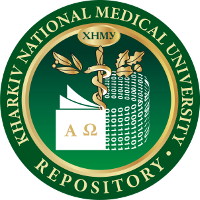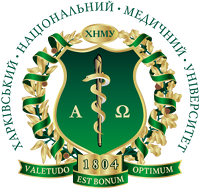Please use this identifier to cite or link to this item:
http://repo.knmu.edu.ua/handle/123456789/27935| Title: | Immunological Aspects of Carbohydrate and Lipid Metabolism in Patients with Periprosthetic Infection and Osteomyelitis |
| Authors: | Kravchun, Pavlo H. Korzh, Mykola Dunaieva, Inna Leontieva, Frida Gusakov, Igor Krapivko, Svitlana Dielievska, Valentyna |
| Keywords: | periprosthetic infection osteomyelitis |
| Issue Date: | Apr-2020 |
| Citation: | Immunological Aspects of Carbohydrate and Lipid Metabolism in Patients with Periprosthetic Infection and Osteomyelitis / P. Kravchun, M. Korzh, I. Dunaeva [et al.] // Aktuel Ernahrungsmed. – 2020. – N 2 (45). – Р. 85–92. – DOI https://doi.org/10.1055/a-1088-1029. |
| Abstract: | Introduction Treatment of patients with periprosthetic in- fection and osteomyelitis is rather challenging. The objective of the research was to evaluate the metabolism of carbohydrates and lipids and immunological profile in patients with periprosthetic infection and osteomyelitis. Material and methods A study on carbohydrate and lipid metabolism and immunological examination of patients with periprosthetic infection after knee and hip joint endo- prosthetics (n = 16) and osteomyelitis (n = 20) was conducted. Results The patients with periprosthetic infection were characterized by anemia, impaired glucose tolerance, predisposition to enhanced atherogenesis, autoimmune granulocytotoxic antibodies and sensitization to synovial membrane and Staphylococcus aureus. The patients with osteomyelitis showed decrease of production of the leukocyte migration inhibition factor (LIF), both nonspecific and to the antigens of cartilage tissue, as well as sensitization to Streptococcus and E. coli. In the patients studied glucose metabolism disturbances have been associated with the presence of autoimmune lymphocytotoxic antibodies, reduced production of LIF, both nonspecific and to the antigens of synovial membrane. Atherogenesis was associated with increased circulating immune complexes, autoim- mune lymphocytotoxic and granulocytotoxic antibodies,decreased LIF and sensitization to the antigens of connective tissue, Streptococcus and Proteus. Anemia was associated with increased autoimmune lymphocytotoxic antibodies, delayed type sensitization to bone and cartilage tissue, to Staphylococcus and sensitization by accelerated type to E. coli and Proteus. Conclusions Physicians should analyze immunological data while treating and monitoring the patients with connective tissue infections and disturbances of glucose and cholesterine metabolism. |
| URI: | https://repo.knmu.edu.ua/handle/123456789/27935 |
| Appears in Collections: | Наукові праці. Кафедра клінічної фармакології та внутрішньої медицини |
Files in This Item:
| File | Description | Size | Format | |
|---|---|---|---|---|
| 2020-10-1055-a-1088-1029.pdf | 1,43 MB | Adobe PDF |  View/Open |
Items in DSpace are protected by copyright, with all rights reserved, unless otherwise indicated.

